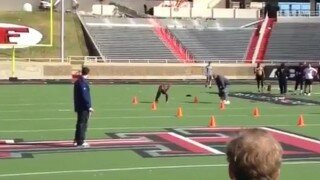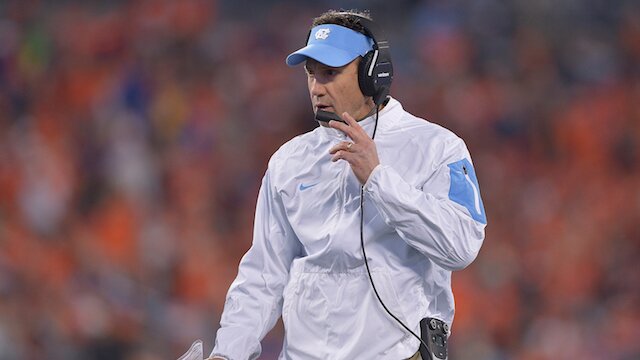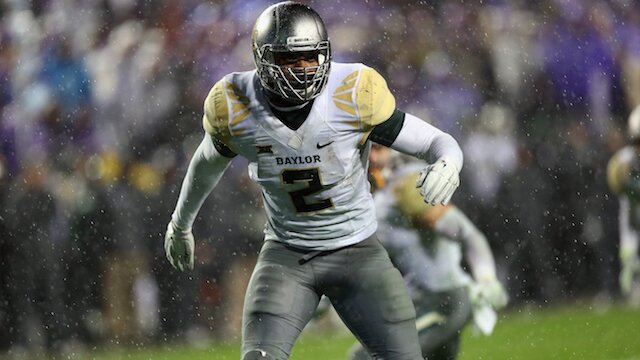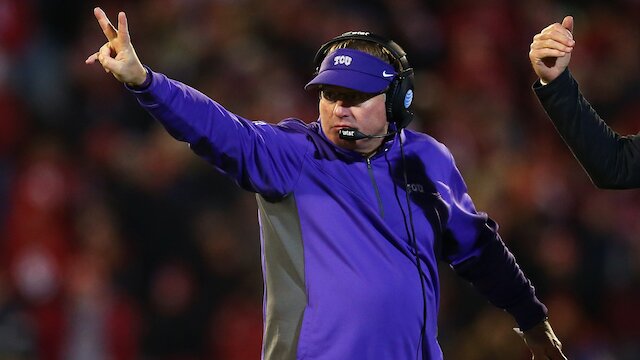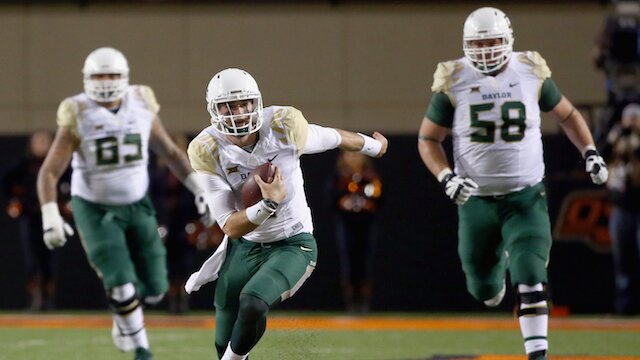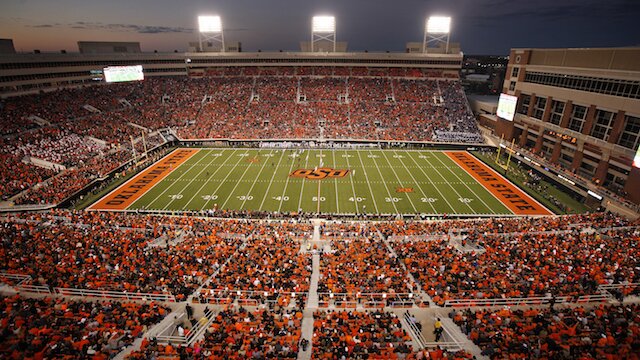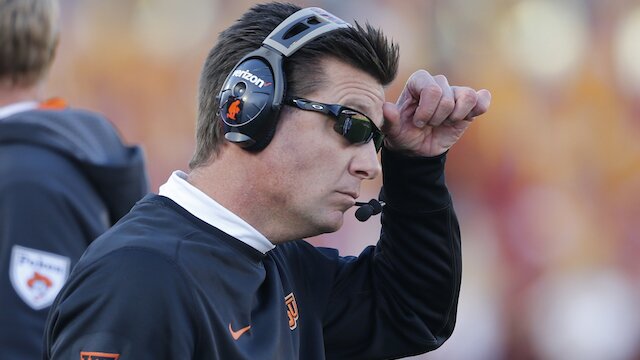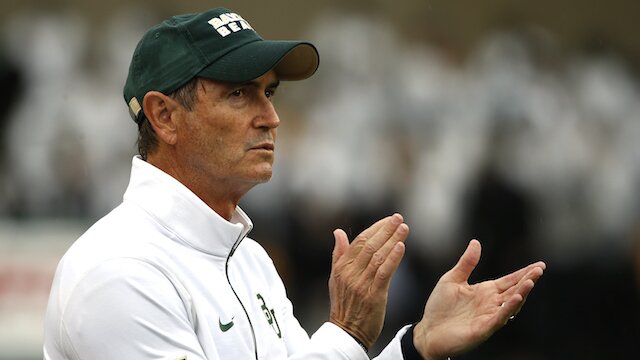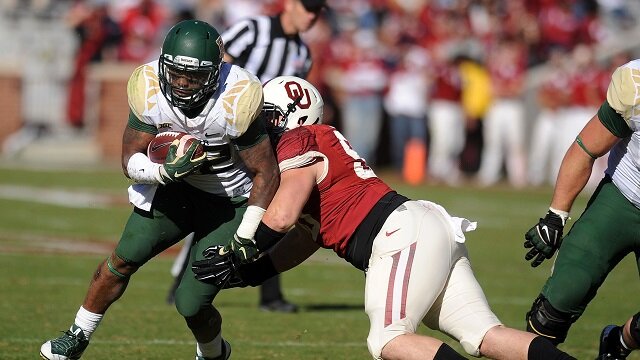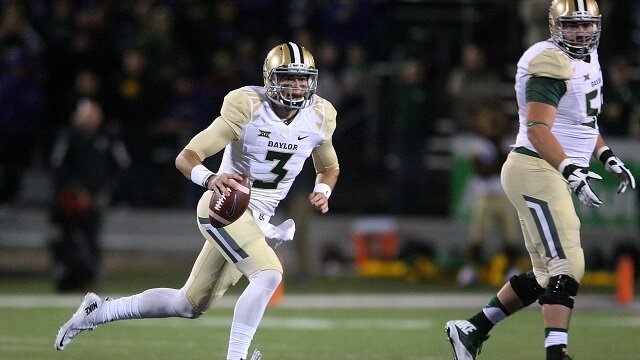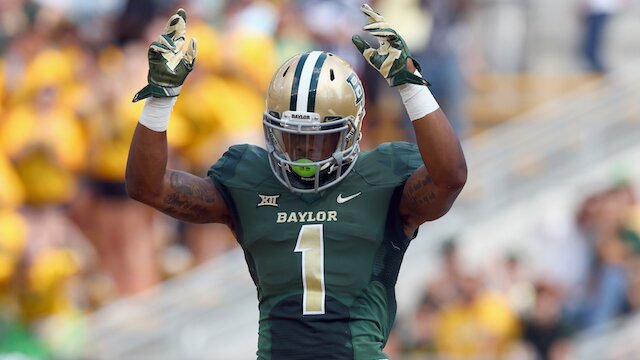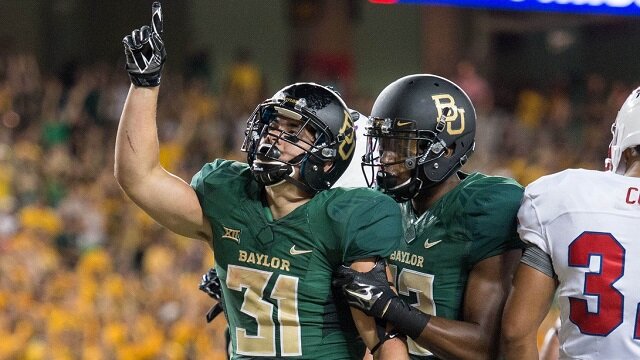
If there is one thing that Mark Emmert and the NCAA can be counted on, it is to play the hapless villain.
In almost every instance, the ruling body of college athletics comes off as crass, greedy, unethical, and all-in-all out of touch with the way the world currently works in order to maintain their antiquated power-base over young athletes. So it should come as no surprise that they are once again on the wrong side of the issue by ruling Baylor Bears running back Silas Nacita ineligible.
Nacita became a fan favorite in 2014 after he walked onto the football team following a year at community college. He was earning his own way through school with academic scholarships, which did not help him with his living situation. Nacita was homeless, bouncing from couch to couch as he could find it and scraping by however he could manage.
Then, according to Nacita, a close family friend stepped in and offered to help keep him off the street as he pursued his dream of playing college football. They offered to help Nacita by putting him up in an apartment and provided enough so he wouldn’t have to wonder where his next meal was going to come from. Nacita accepted the offer, happily choosing not to remain homeless, and enjoyed some moderate success in 2014, rushing for 191 yards on 31 carries with three rushing touchdowns on the year. More importantly, he was named first-team Academic All-Big 12 in his first year on campus.
But Nacita was unaware that accepting help from a family friend to get off the street was a violation of NCAA rules and announced via his Twitter (@Salsa_Nacho) that he had been ruled ineligible for accepting impermissible benefits and would be kicked off the football program. While understandably disappointed, Nacita displayed remarkable grace and maturity, stating that “I respect the decision of the NCAA” and that he believes “the NCAA plays an important role in maintaining true collegiate athletics.”
He finished his statement on Twitter by telling his followers “I’m just a kid who wanted to go to school and play football. Nothing more.” Instead of living that dream, however, he got trampled under the heavy, tone-deaf hand of NCAA regulations.
On paper, the NCAA’s stance is defendable. They don’t want schools to get around scholarship restrictions by having boosters pay for room and board of top athletes for them to then walk on to the football team and contribute right away. The problem, as it so often is with the NCAA, is that the reality of these situations don’t always play out like they do on paper.
Nacita is the epitome of the student athlete. He had a dream of playing college football and put in incredible work and sacrifice to make that happen. His story could have been one that the NCAA used to build some much-needed goodwill towards their organization by treating Nacita like a person and not a box checked on a form.
To cap off their tone-deaf performance, the NCAA’s twitter account tweeted out a PR piece that they had done to puff themselves up about Iowa State Cyclones forward Daniel Edozie and how he “has come a long way since growing up homeless.” On the SAME DAY that the NCAA suspends one homeless kid for getting off the street, they use the struggles of another former homeless kid to pat themselves on the back.
The NCAA then worked to cover its tracks by publicly saying that they were not the ones to declare Nacita ineligible and that Baylor had not requested a waiver for him, essentially passing the blame onto the university. So either the NCAA is lying and trying to cover their tracks in the wake of another huge public backlash or the Baylor compliance office overreacted in fear of possible NCAA violations. Either way, the system has failed the student athlete.
This is far from the first time that the NCAA has been lambasted for their rules being carried out to ridiculous extremes. The Oklahoma Sooners self-reported an NCAA secondary violation in 2013 in which three athletes were served more than the allowable amount of pasta at a graduation banquet. In what came to be known as “PastaGate,” the OU athletes had to pay back $3.83 to a charity of their choice to be reinstated.
So much of this kind of NCAA nonsense could be avoided if they didn’t try to paint the world in terms of stark black and white, and deem every action right or wrong in a vacuum. Context matters everywhere except the NCAA offices. A young man trying to get his education and fulfill a life-long dream shouldn’t have to turn away the help of friends and family to stay on the street in order to satisfy the bureaucracy of the NCAA.
Nacita didn’t do anything wrong in this situation. When you look at the entire picture, he’s done quite a bit right and should be commended for his determination, hard work, and perseverance through some difficult circumstances. But the NCAA has failed once again to see a situation for what it really is and settled on one detail to decide the entire fate of a young man. In this case, it was a studious young man looking to not remain homeless accepting help from a family friend.
The NCAA, as it has so many times before, will get hammered for this decision and deservedly so. There is no reasonable person who would look at this situation and deem that Nacita was gaining any kind of competitive advantage. All he was doing was working his way into the school he wanted to go and accepting help to get off the street. Any person who looks at this situation can see that this young man should be celebrated, not punished.
But that’s the problem that we have seen from the NCAA and major universities time and time again. They are driven by bureaucracy and greed, not reason, and now Silas Nacitas is paying the price for it.
You can follow Tyler Brett on Twitter @ATylerBrett, on Facebook and on Google.













